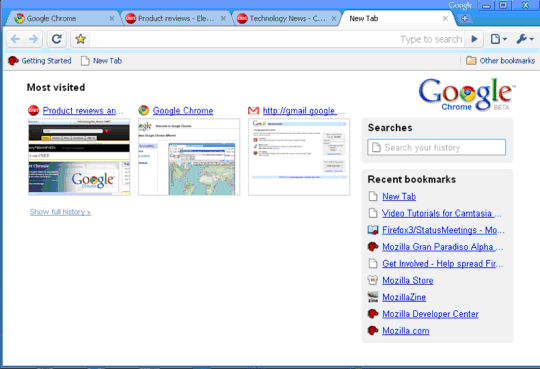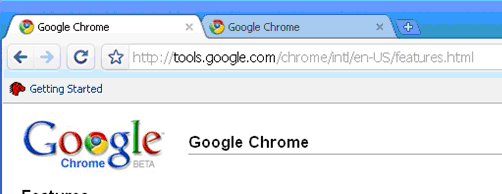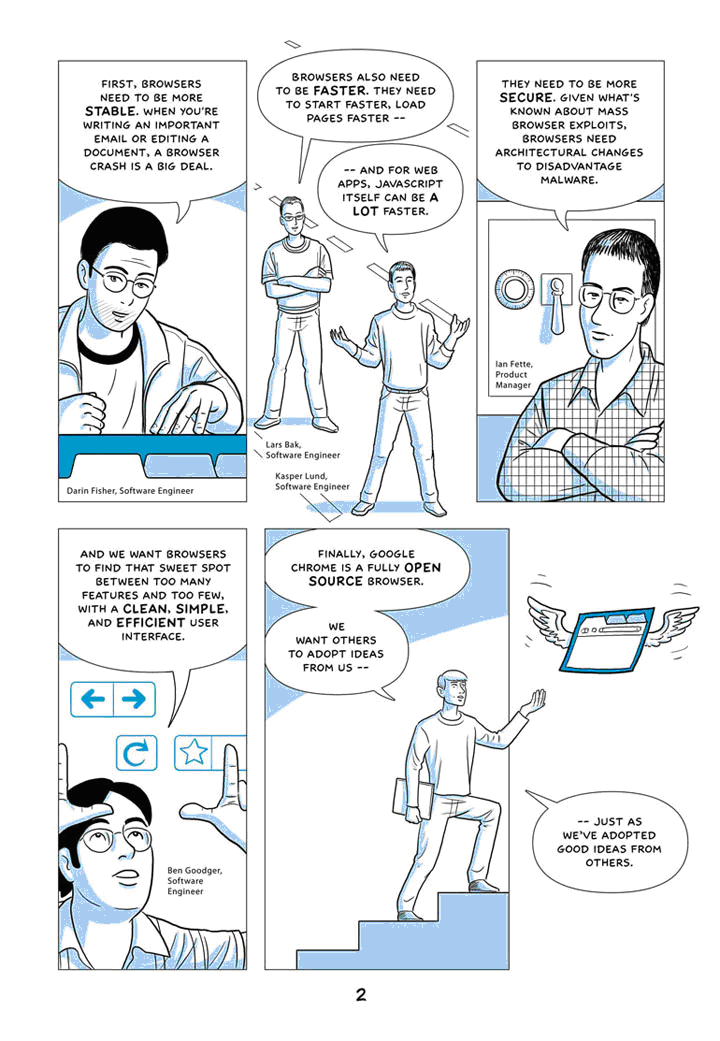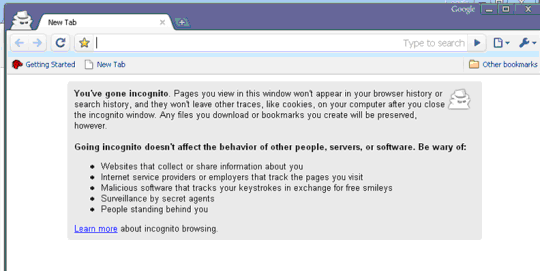GOOGLE CHROME

The search giant is introducing the beta version of the latest platform in 100 countries as it bids to take on Internet Explorer and Firefox.
I was as blindsided by Google Chrome as everyone, but there's no negate that its release was a significant occasion. Chrome is more than just a browser; it represents Google's most recent entry in the ongoing discussion of standards and paramount practices for the Web as an application platform. As such, it may be the company's most imperative offering since Gears which is an open source project that enables more powerful web applications, by accumulation of new features to your web browser:
"From my outlook, Google Chrome and Gears are entering the Web from two directions," says Google's Adam Goodman in Scott McCloud's comic-strip introduction to Chrome. "The [Chrome] browser project is an endeavor to make the Web better for users. The Gears team wants to make the Web enhanced for developers."
We are so fortunate, Google Chrome ships with all of the functionality of the Gears plug-in for Firefox and Internet Explorer previously baked in. But I don't agree that users are the only beneficiaries of the other endeavor that's gone into Chrome. There's lots more going on beneath the hood of the new browser that should concern developers, too.
Roaring engines
For learners, Google's verdict to use the WebKit HTML rendering engine may not be astounding, but it's still noteworthy. WebKit, an improved version of the open source KHTML project, is the rendering engine used by Apple for its Safari browser. It's also the engine found in both Apple's iPhone and Google Android, arguably the two most important mobile Web platforms today. WebKit's HTML and JavaScript code began as a branch of the KHTML and KJS libraries from KDE. This website is also the home of S60's S60 WebKit development.
That means Google Chrome isn't yet another browser to support,
Pretty, it's one more vote in favor of making WebKit a primary target for new Web development projects. It only makes sense to test against the engine that's available on the extensive range of platforms and devices.
And esteem isn't the only reason why WebKit was a good choice. Current WebKit builds in a very hasty manner. As a result, pages normally pop up more quickly in Chrome than in Firefox 3. More prominently, WebKit leads the pack in Web standards compliance (with Opera a close second). The more developers get on board with writing abundant standards-compliant code, free of undocumented tricks and browser-specific hacks, the better it will be for everyone.
I enthusiastically recommend reading the introductory comic strip for more impending into how Google rebuilt the browser from the ground up. Everything, from the browser security model to how plug-ins is managed, has been crafted with the extreme care. Google Chrome really is the next step in the ongoing project to create the eventual client for the Web application platform
You will be viewing several other comics in comic trip as shown above.
Google doesn't need Chrome to be a "Firefox-killer," or to become the prevailing browser on the market. The imperative thing is that Chrome will keep us talking -- and in so doing, as Google is so fond of saying, it will help to push the Web forward. It's high time that we urbanized new standards and practices for today's Web. In that discussion, Google now clearly sits at the head of the table.
Features:
Features include a new format for tabs, the ability to view web pages as thumbnails and new features on the address bar.
Drawback:
There is one downside i.e. lack of add-ons supported by Chrome - but this is a short-term issue. And there are many famous researchers who have jotted out that Google’s Chrome Browser is not yet secure! Chrome is showing some scratches, as researchers point out known security vulnerabilities that can put users at risk of malicious exploits.
It also doesn’t show the browser history but going incognito doesn’t affect the behavior of other people, servers or software!
The Chrome Security Flaws identified security vulnerabilities include known Webkit (the open source engine the browser is constructed around) vulnerabilities that, combined with a Java bug, can result in downloads of executable malicious files. Other security researchers note there are ways to crash Chrome via malicious links, possibly without user input.
Early days for Chrome yet, and very early for the risk assessments and vulnerability audits to be anywhere near complete: we'll all be hearing loads about these -- and, one hopes, patches and fixes for them -- in the subsequent days.
For now its worth to remind your self that Chrome is still in beta work in progress that, for all of its promise, and especially all of its buzz, should be used carefully (if at all) in the small and midsize business workplace.












